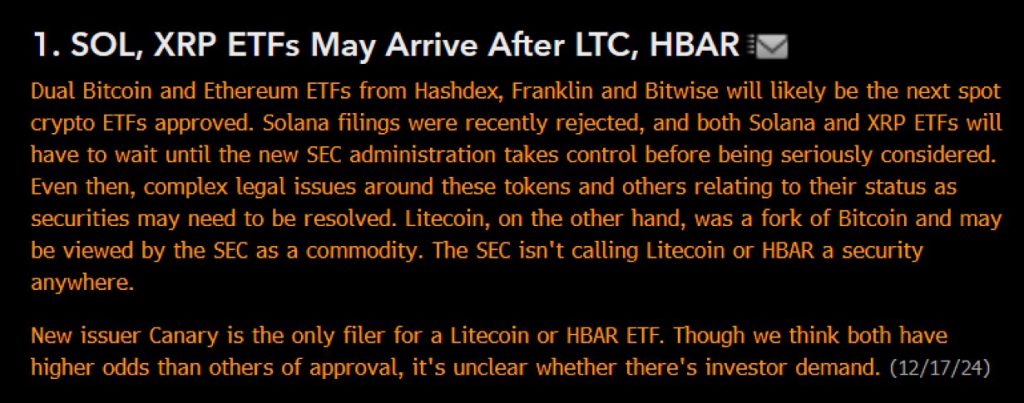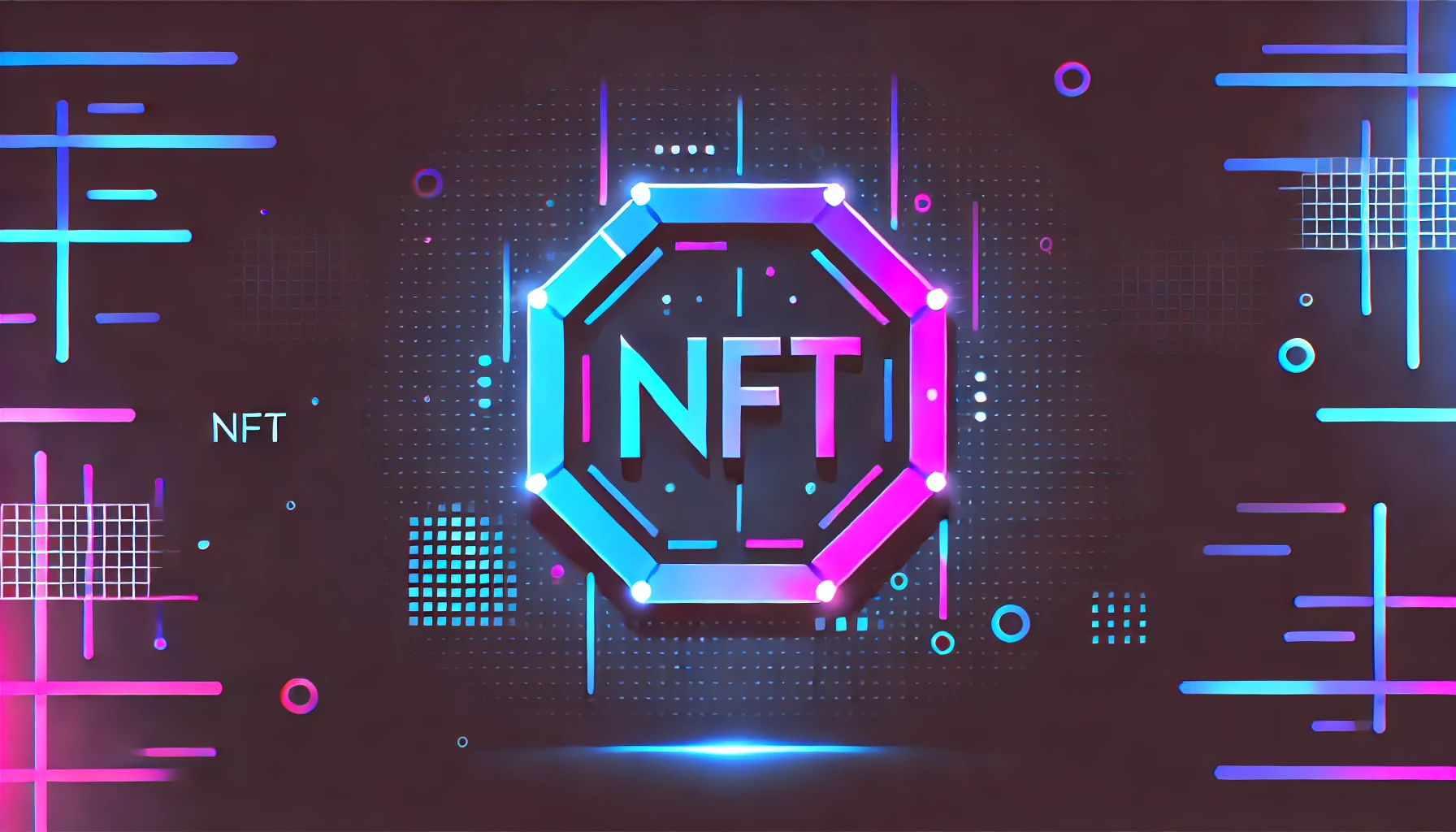
This story is still under development and its content, sources or opinions may change over time.
Bloomberg analysts predict that a Hedera (HBAR) ETF may receive regulatory approval in 2025 before a Solana (SOL) ETF, highlighting HBAR’s regulatory advantages amid ongoing scrutiny of SOL.
Key Points
- The cryptocurrency market is currently volatile, with Bitcoin priced at approximately $107,457, indicating strong bullish sentiment.
- The SEC has been slow to approve cryptocurrency ETFs due to regulatory uncertainties.
- If HBAR’s ETF receives approval ahead of SOL’s, it may attract institutional investors, altering market dynamics.
Regulatory Landscape and ETF Predictions
Bloomberg ETF analysts James Seyffart and Eric Balchunas have provided insights indicating that the approval for an ETF related to Hedera (HBAR) is likely to precede that of Solana (SOL) in 2025. Their analysis points to a phased process for cryptocurrency ETF approvals, beginning with Bitcoin and Ethereum combination ETFs, followed by Litecoin.

HBAR’s advantage lies in its current classification, as it has not been designated a security, a distinction that could facilitate its approval in a complicated regulatory environment.
Balchunas elaborated on this prediction, stating that HBAR’s classification as a non-security sets it apart from Solana, which has been identified as a security in ongoing SEC cases. The regulatory scrutiny surrounding Solana has resulted in delays and uncertainty about its ETF prospects. Seyffart further emphasized that Solana ETFs may require a re-filing process under a potentially more favorable new SEC regime, indicating that the current leadership’s stance could hinder Solana’s approval timeline.
Implications for Investors
The potential approval of an HBAR ETF before SOL’s might shift investor interest towards HBAR, as ETFs provide an easier avenue for institutional investment into cryptocurrencies. If HBAR’s ETF is approved first, it could lead to a significant influx of institutional capital, impacting the price dynamics of both HBAR and SOL. The regulatory landscape is pivotal, as the SEC’s decisions in the upcoming months will heavily influence market sentiment and investor behavior.
Market analysts and the cryptocurrency community have actively engaged in discussions concerning these predictions, particularly on social media platforms. The current sentiment appears optimistic for HBAR while remaining cautious regarding SOL, as the regulatory focus remains critical in shaping investor confidence and market trends. The actual actions taken by the SEC in the near future will likely play a decisive role in the outcome of these predictions.
Market Dynamics and Future Considerations
The current state of the cryptocurrency market is characterized by heightened volatility. Bitcoin is trading at approximately $107,457, reflecting strong market sentiment. The Fear & Greed Index, which measures investor sentiment, is currently at 81, indicating “extreme greed.” This heightened market optimism could enhance interest in cryptocurrency ETFs, particularly those related to HBAR, should they receive regulatory approval.
In light of these developments, it is essential for investors to remain informed about regulatory changes and market trends. The potential for HBAR’s ETF to gain approval first could signal a broader acceptance of cryptocurrency ETFs, paving the way for more robust institutional involvement in the sector.
Understanding HBAR and Its Position
HBAR serves as the native cryptocurrency of the Hedera Hashgraph platform, which offers a distributed ledger technology alternative designed for speed, security, and fairness. Unlike traditional blockchain systems, Hedera utilizes a consensus algorithm known as Hashgraph, providing fast transaction finality and high throughput while resisting common network attacks. The governance of Hedera is managed by the Hedera Governing Council, comprising various enterprises and institutions, ensuring a decentralized oversight approach.
The utility of HBAR within the Hedera ecosystem includes paying for transaction fees, staking, and executing smart contracts. This multi-functionality distinguishes HBAR from many cryptocurrencies primarily viewed as investment vehicles. The classification of HBAR as a non-security may stem from its operational focus, emphasizing utility over investment, thereby aligning with regulatory expectations and reducing the likelihood of being labeled a security.
The landscape surrounding cryptocurrency ETFs continues to evolve, influenced by regulatory developments and market sentiment. As analysts like Seyffart and Balchunas predict potential timelines for ETF approvals, the focus remains on how these shifts will impact investor behavior and market dynamics. The cryptocurrency industry will closely monitor the SEC’s actions and broader regulatory changes, particularly as the U.S. elections could lead to shifts in regulatory approaches. Investors are encouraged to stay vigilant regarding official announcements while considering the inherent volatility of the cryptocurrency market.
Disclaimer: All information provided on this website is for informational purposes only and should not be construed as financial or investment advice. We do not guarantee the accuracy, completeness, or timeliness of the information, and we are not responsible for any financial decisions you may make based on this information. Cryptocurrencies are highly volatile assets, and any investment in them carries a high level of risk.
More Like This
*AI technology may have been used to develop this story and publish it as quickly as possible.



